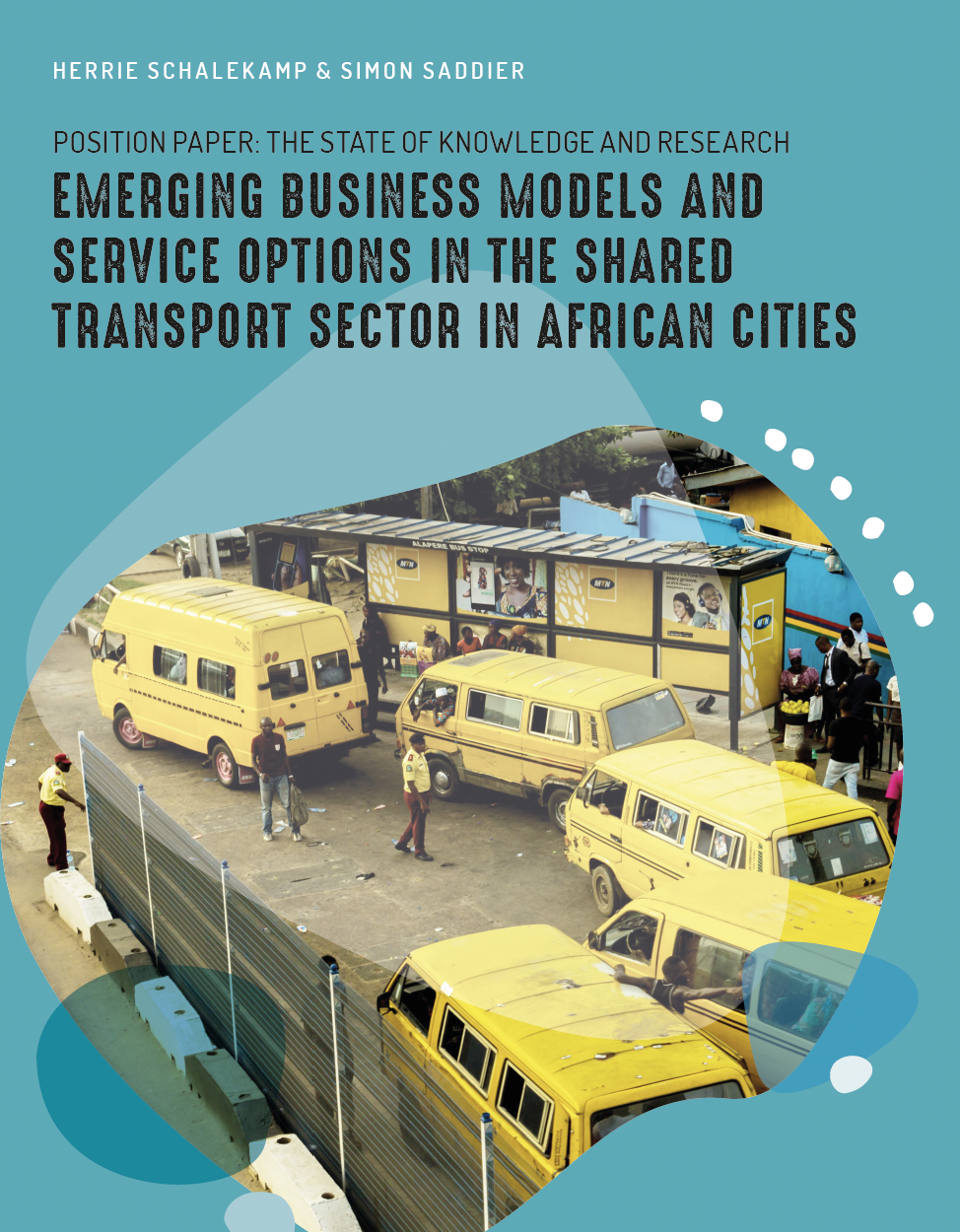The overall purpose of this position paper is to provide an overview of current knowledge on specific issues related to mobility and access in Sub-Saharan African cities, as well as to inform Volvo Research and Educational Foundations (VREF) and other researchers in developing a research agenda in this area. One of the core themes identified for future research is emerging business models and service options in the shared transport sector in African cities, which is the topic of this position paper.
Shared transport takes two broad forms. Collective shared transport services carry multiple passengers using the same vehicle, at the same or during overlapping time; these services typically take the role that mass, sched- uled public transport plays in other world regions. These services tend to rely on buses, minibus and other forms of light commercial or passenger vehicles. For-hire transport carries different passengers using the same vehicle at dif- ferent times. These for-hire options include metered taxis and those hailed and paid for through electronic means.
Pooling or ride-sharing services are a more recent, if not yet widespread, form of shared transport, a hybrid between collective and for-hire shared transport. How- ever, what all of these services have in common, and which warrants their inclusion in this paper, is that they run on a for-reward basis, usually in the form of a fare that the passenger pays for being transported.
Objectives of the position paper
- To outline emerging trends observed in the shared transport sector in Sub-Saharan African cities;
- To describe new business models and service op- tions in the shared transport industry ;
- To summarise the state of knowledge, research and research capacity around this theme.
